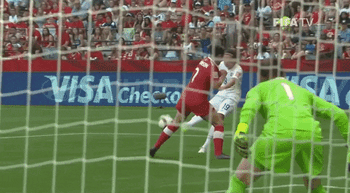Motherhood in sports
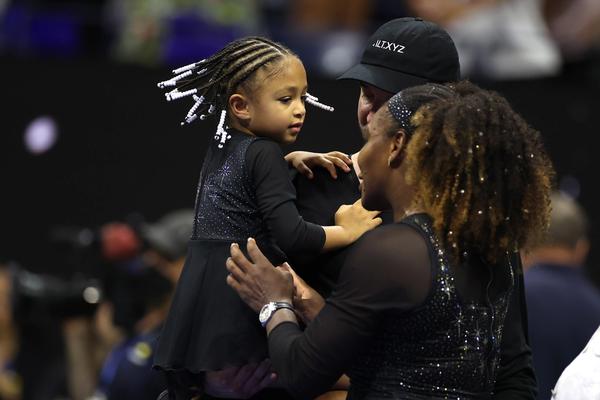
🎾 Serena Williams served up change
When it comes to moms who’ve changed the game, we have to start with retired tennis legend Serena Williams. Serena’s first pregnancy started on a high-note, winning the 2017 Australian Open while eight weeks pregnant, but after the birth of her daughter, Alexis Olympia Ohanian, Jr., she faced life-threatening health complications.
- Serena vulnerably discussed her emergency C-section and postpartum depression just months later. She’s continued on to shed much-needed light on the horrifying disparities Black women face in medical care.
The now–mom of two also led the way for mothers on the court. When she took maternity leave in April 2017, Williams was ranked No. 1 in the world. But upon returning to competition in early 2018, the WTA ranked Williams No. 453.
- Serena called out the absurd situation and inspired change. Now, if a player takes a leave of absence due to pregnancy, injury, or illness, their most recent ranking freezes and can be used to gain entry into tournaments upon their return. Game-changing.
👟 Allyson Felix raced things forward
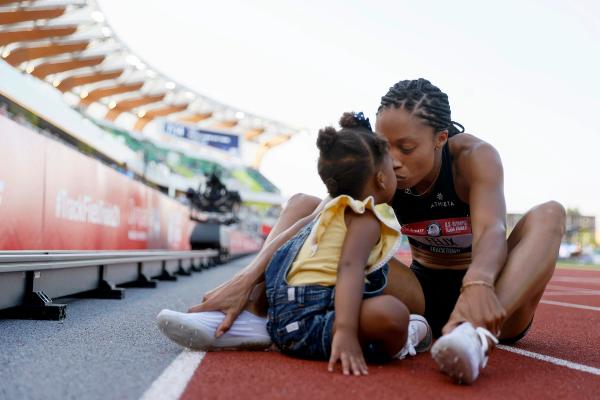
Months before her impending retirement in 2022, Allyson Felix — the most decorated U.S. track athlete in Olympic history — declared, “This season I’m running for women. I’m running for a better future for my daughter. I’m running for you.” *wipes tear*
Back in 2019, Felix spoke out against how then-sponsor Nike planned to reduce her salary by a whopping 70% during her pregnancy. Thanks to her activism, Nike eventually changed its tune and enacted a new maternity policy that same year.
- Like Serena, Felix advocates on behalf of Black mothers, even testifying before U.S. Congress in May 2019 on the health and mortality crisis that disproportionately affects Black women.
After leaving Nike, she partnered with new sponsor Athleta and the nonprofit &Mother to provide free child care to athletes and their support staff at last summer’s USA Track & Field Championships. The trio also established $10K grants to help alleviate related expenses for athlete-moms.
- Plus, Felix’s own shoe brand, Saysh, implements a maternity return policy that offers a new pair for free to customers whose shoe sizes change due to pregnancy.
✏️ Enshrining maternity protections
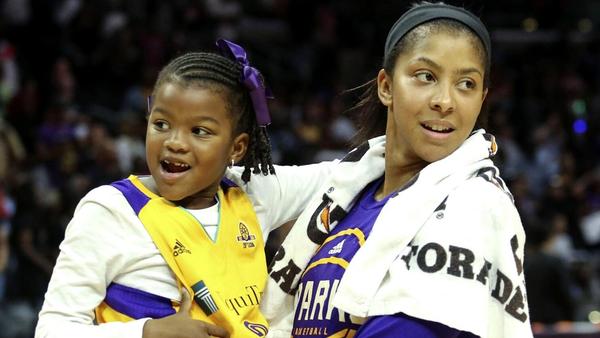
As the above stories demonstrate, it takes a whole lot of bravery and advocacy to enact much-needed change. From the hardwood to the links, here are a few additional groundswell moments that expanded (or introduced!) maternity protections in women’s sports.
🏀 WNBA: Maternity rights progress has been slow, even in the trailblazing W. In 2018, superstar Skylar Diggins-Smith “didn’t tell a soul” that she was pregnant with her son. Why? Players were only guaranteed half of their (already small) salary on maternity leave.
- Fortunately, the league made collective bargaining agreement (CBA) history in 2020, adding fully paid maternity leave, guaranteed two-bedroom apartments for players with children, and a $5K annual child care stipend. And who knows what’s in store with that already groundbreaking CBA potentially being renegotiated for next year.
⚽ NWSL: A whole host of badass footballers have been redefining what it means to be a soccer mom — looking at you, Alex Morgan, Sydney Leroux, Crystal Dunn (the list goes on and on). But it wasn’t until February 2022 that their maternity rights were protected in the NWSL.
- That’s when the league inked their historic first-ever CBA, granting players eight weeks of fully paid parental leave, whether for birth or adoption.
🏒 PWHL: As the first-ever North American women’s pro league with a CBA in place before their first game, the PWHL had maternity rights protections baked in well before puck drop. World’s speediest mom Kendall Coyne Schofield notably helped negotiate that landmark CBA which includes salary-protected pregnancy leave and facilities for nursing mothers.
💪 The fight continues
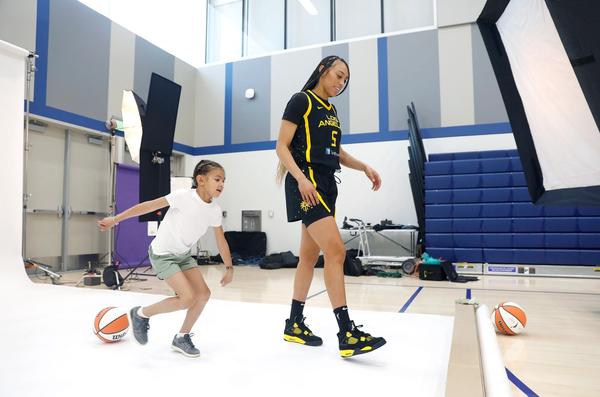
It’s downright energizing to see all the progress that’s been made. Who knew a CBA could be so thrilling?
But there’s still a long way to go to achieve gender equity in sports, and maternity rights need to be part of the conversation. Athletes should not feel like they need to put their career “on hold” to become a mother nor be punished for choosing to become a parent.
- And there’s still progress to be made in even the most progressive of leagues. Las Vegas Ace turned LA Spark Dearica Hamby notably sued the WNBA and the Aces in 2023, alleging that they discriminated against her for being pregnant.
Other than holding organizations accountable, sporting bodies must also address the unique needs of current and future athlete-moms in the U.S. After the devastating fall of Roe v. Wade in June 2022, it’s not just healthcare and fertility partners that athletes need — it’s ensured access to full reproductive rights.
- Given the ever-changing patchwork of state laws, the next best way to celebrate mothers in sports may simply be for teams and leagues to provide athletes clear paths to all the medical (and unfortunately, legal) support they may need regarding reproductive care.
In the words of legendary sports journalist Holly Rowe, “let’s normalize working mothers,” including athlete-mothers. And let’s make sure their leagues, sponsors, and fans support them and fight for their full equity and autonomy along the way.
Enjoying this article? Want more?

Sign up for The GIST and receive the latest sports news straight to your inbox three times a week.

